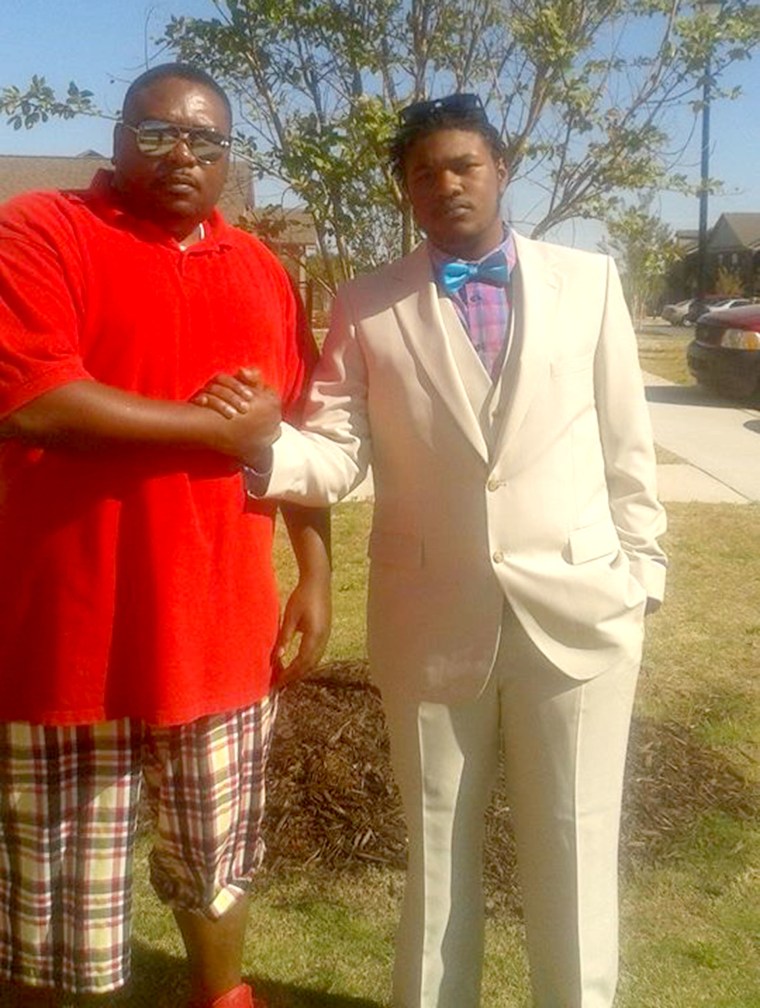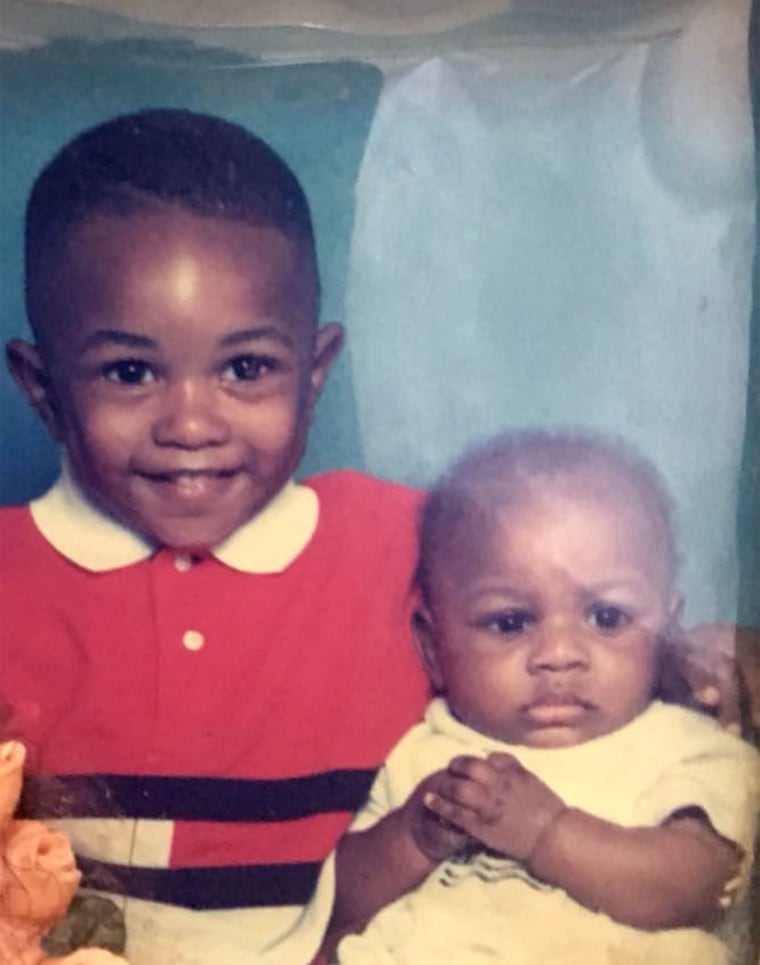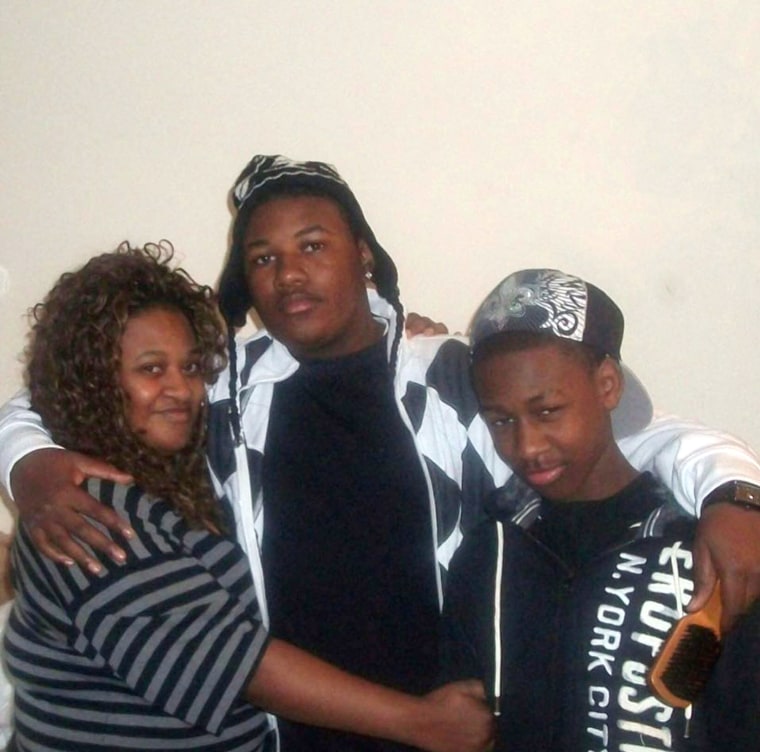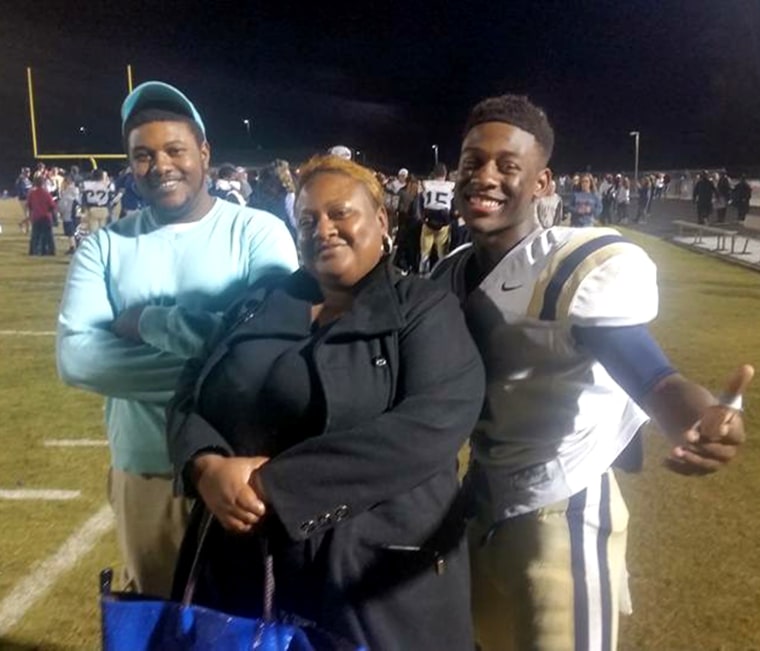Three years ago, Javaris “Vari” Benson laced up his sneakers and met some friends at a nearby basketball court. In the middle of their game, Vari collapsed. At first, his friends wondered if he was joking, but it soon became clear that the 21-year-old was ill. They called for help, though it was too late. Vari passed away before paramedics arrived.
“I felt robbed of my own future and his,” mom Lekesha Benson, 41, who lives in Anderson, South Carolina, told TODAY. “It is not just missing him, but also missing the things I never got to see Vari do.”
Benson recently posted on Facebook about Vari’s death and believes that he didn’t receive proper medical care because of systemic racism and that his death was preventable. She is overwhelmed by the outpouring of support and by the many people who said that Vari’s story helped them.
“I didn’t expect so many to read it. I just needed to vent,” she said. “The message that I got the most were from white women who said, ‘I didn’t understand what white privilege was until you explained it.’”
‘Never sick’
Since he was 6, Vari loved sports and this continued as he played high school football. But he was truly passionate about music and writing. Prior to his death he had moved to Murfreesboro, North Carolina to settle in before starting school for business and music.
“He wrote short stories, rapped,” Benson said. “He was a creative.”

He was also “the epitome of a big brother” to younger brother, Jacory, and a compassionate friend.
He was healthy and Benson doesn’t remember frequent doctor’s visits even when he was little. But at 19 years old, he collapsed with chest pains.
“I knew that there was something wrong with him. He said, ‘Mom I need to get to the hospital. I think I’m having a heart attack,’” she said. “He was never sick.”
The nurse asked Vari ordinary questions about lifestyle behaviors. But when the nurse asked a second time if he smoked or did drugs, Benson thought her questioning was suspicious.
“They were kind of dismissive of his symptoms,” she said. “I remember she asked me if he normally twitched like that and I said … no he doesn't just twitch.”

While Vari calmly answered the questions, Benson snapped at the nurse.
“I probably wasn’t very polite,” she said. “I think this lady thought my son did drugs because he was a young athletic Black kid and it was just the way she asked him.”
She took blood and did an EKG and the nurse announced that his toxicology was clear. Benson was furious. She asked about other test results and the nurse said Vari had a healthy heart and probably simply had anxiety.
“I followed up with his physician because I wasn’t satisfied with the care he received,” she said.
The nurse practitioner at Vari’s doctor’s office agreed that it was likely anxiety. They offered him a prescription to help but he declined. He was thriving and excited about his future.
Two years later, he experienced cardiac arrest while playing basketball. Later, the autopsy revealed that he had hypertrophic cardiomyopathy, a heart condition that caused his left ventricle to thicken.
What is hypertrophic cardiomyopathy?
According to the American Heart Association, hypertrophic cardiomyopathy is usually caused by abnormal genes in the heart muscle. These genes cause the walls of the heart chamber to become thicker than normal, which can reduce the amount of blood pumped throughout the body. It is a chronic disease that can get worse over time.
“A large proportion of patients are asymptomatic. Symptoms can be varied and mistaken for other things,” Dr. Thomas D. Ryan, director of clinical operations, cardiomyopathy and advanced heart failure at Cincinnati Children’s Hospital, who did not treat Vari, told TODAY. Symptoms can include:
- Chest pain
- Shortness of breath, especially while exerting energy
- Fatigue
- Abnormal heart rhythms
- Dizziness or lightheadedness
- Fainting
- Swelling in the ankles, feet, legs abdomen and veins in the neck

He said treatment depends on the severity of the condition anywhere from close observation to beta blockers or even some heart procedures.
Race and medical treatment
Benson believes that if Vari received a referral to a cardiologist or underwent an echocardiogram, he would still be alive.
“It would have been caught,” she said. “His death was preventable.”
Dr. Utibe R. Essien, an assistant professor at the University of Pittsburgh School of Medicine, says the research shows race impacts what treatment people receive for cardiac conditions.
“One of the landmark health disparities papers was published in 1999 in the New England Journal of Medicine, showing there was differential treatment with cardiovascular disease just based on what patients looked like,” Essien, who did not treat Vari, told TODAY. “This has been played on in the research over 20 years.”

His own research shows that this trend has continued when it comes to the treatment of Black people with heart conditions. But he hopes that the current national focus on anti-racism will help doctors to correct this.
“This is not a new issue,” he said. “It is a scary thing that the color of my skin impacts how I get treated … But I hope this moment helps us reassess how we provide patients with equitable care.”
Benson said she hopes that Vari’s story will help people understand how systemic racism hurts people. She started a foundation, NOLA (No Other Life Affected) Network, inspired by Vari. With the organization, Benson aspires to create a positive impact for children by empowering families, through education and health awareness. It was Vari’s dream to help people advocate for themselves. Benson hopes NOLA Network will help people ask for better treatment.
“We have to acknowledge that systemic racism a problem,” Benson said. “I don’t want another parent to lose their child in the way I lost mine.”